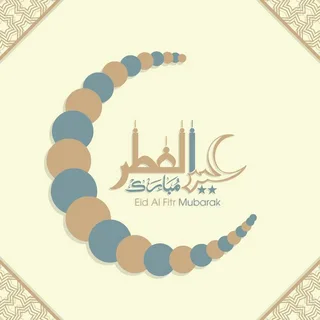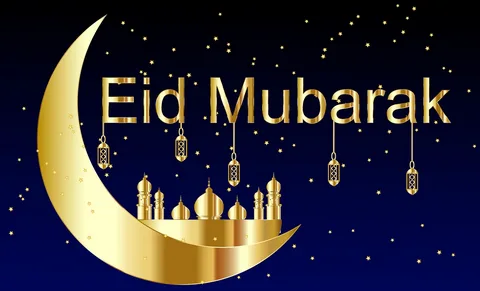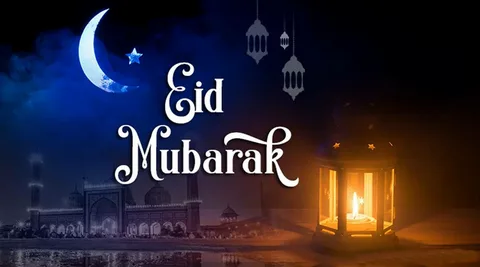Eid al-Fitr, also known as the Festival of Breaking the Fast, marks the end of Ramadan, the Islamic holy month of fasting. This joyous occasion holds immense significance for Muslims worldwide, symbolizing spiritual growth, reflection, and gratitude, in this article on Arabian Tongue website we will explorer what is eid al fitr 2024.
History and Significance

Origins of Eid al-Fitr
Eid al-Fitr traces its roots back to the time of the Prophet Muhammad, who established it as an annual celebration following the end of Ramadan. It is believed to have originated in Medina after the Prophet’s migration from Mecca.
Religious Significance
Eid al-Fitr holds profound religious significance in Islam, symbolizing the completion of a month-long fast observed during Ramadan. It serves as a time for Muslims to express gratitude to Allah for granting them the strength and perseverance to fast and engage in acts of worship throughout the holy month.
Cultural Significance
Beyond its religious aspects, Eid al-Fitr is a cultural celebration that brings families and communities together. It is a time of joy, unity, and generosity, with traditions varying across different regions and cultures.
Observance and Celebration
Fasting during Ramadan
During Ramadan, Muslims observe fasting from dawn until sunset, abstaining from food, drink, and other worldly desires. Fasting is one of the Five Pillars of Islam, representing self-discipline, purification, and spiritual growth.
Rituals on Eid al-Fitr
Eid al-Fitr, like any other major festival, is marked by a variety of rituals and customs that vary among different cultures and regions. Here are some common rituals observed on Eid al-Fitr:
- Sighting of the Moon: Eid al-Fitr begins with the sighting of the new moon, which marks the end of Ramadan. Muslims rely on the sighting of the moon to determine the exact date of Eid.
- Eid Prayer: On the morning of Eid al-Fitr, Muslims gather in large congregations to perform a special prayer known as Salat al-Eid. This prayer is typically held in mosques, large open spaces, or designated prayer grounds. The prayer consists of two rakats (units) and is accompanied by specific supplications and recitations.
- Zakat al-Fitr: Before performing the Eid prayer, Muslims are required to give Zakat al-Fitr, also known as Fitrana or Sadaqat al-Fitr. This is a form of charity given to the needy to ensure they can also partake in the celebrations of Eid. It is obligatory for every Muslim, and it is usually given in the form of staple food items, such as wheat, barley, dates, or their monetary equivalent.
- Eid Greetings: After the Eid prayer, Muslims exchange greetings of “Eid Mubarak” or “Happy Eid” with each other as a way of spreading joy and goodwill.
- Eid Sermon: In some communities, a sermon or Khutbah is delivered by the imam following the Eid prayer. The sermon typically emphasizes the significance of Eid, gratitude to Allah, and reminders of Islamic teachings.
- Family Gatherings: Eid al-Fitr is a time for families to come together and celebrate. After the Eid prayer, families gather for festive meals, which often include special dishes and sweets prepared for the occasion.
- Eid Gifts: It’s common for people, especially children, to exchange gifts on Eid al-Fitr as a way of expressing love and affection for one another.
- Dressing in Finery: Muslims often wear new or their best clothes on Eid al-Fitr as a symbol of joy and festivity. It’s a tradition to dress in colorful attire, and some cultures have specific traditional garments for Eid.
- Visiting Relatives and Friends: It’s customary to visit relatives, friends, and neighbors during Eid al-Fitr to share the joy of the occasion and strengthen social bonds.
Customs and Traditions
Greetings and Exchanges
One of the most cherished traditions of Eid al-Fitr is exchanging heartfelt greetings and good wishes. Muslims greet each other with phrases like “Eid Mubarak” (Blessed Eid) or “Eid Sa’id” (Happy Eid), spreading love and positivity throughout the community.
Special Foods and Desserts
Eid al-Fitr is synonymous with delicious feasts featuring traditional dishes and sweets. Families prepare elaborate meals, including savory delicacies like biryani, kebabs, and samosas, along with mouthwatering desserts like baklava, kunafa, and sheer khurma.
Acts of Charity
Charity and generosity are integral aspects of Eid al-Fitr, with Muslims encouraged to give back to their communities and support those in need. It is customary to offer Zakat al-Fitr, a form of charity given before Eid prayers to ensure that everyone can partake in the festivities.
What is Eid al Fitr 2024

Eid al-Fitr holds special significance in 2024, as Muslims around the world eagerly anticipate the end of Ramadan amid various global events and challenges. Despite the uncertainties, the spirit of Eid remains strong, fostering a sense of hope, resilience, and solidarity.
In 2024, as in any other year, Eid al-Fitr holds immense significance for Muslims worldwide. This festival marks the end of Ramadan, the Islamic holy month of fasting, prayer, reflection, and community. Here are some reasons why Eid al-Fitr is important:
- Spiritual Renewal: Eid al-Fitr is a time for Muslims to celebrate the completion of a month-long period of fasting and spiritual reflection. It’s a time to feel spiritually renewed and to express gratitude to Allah for providing the strength to observe Ramadan.
- Community Bonding: Eid al-Fitr is a time for Muslims to come together as a community. Families and friends gather for special prayers, meals, and festivities. It strengthens the bonds of brotherhood and sisterhood among Muslims.
- Charity and Compassion: During Ramadan, Muslims are encouraged to increase their acts of charity and compassion towards those in need. Eid al-Fitr emphasizes this aspect by encouraging Muslims to give Zakat al-Fitr, a form of charity given to the needy before Eid prayers. This ensures that everyone can partake in the joyous festivities.
- Cultural Celebration: Eid al-Fitr is not only a religious holiday but also a cultural celebration. Different regions have their unique customs and traditions associated with Eid, including special foods, clothes, and decorations. These cultural elements add vibrancy to the celebration.
- Renewal of Family Ties: Eid al-Fitr is a time for families to come together, reconcile any differences, and strengthen familial ties. It’s a time for forgiveness, love, and unity among family members.
FAQs
What is the significance of Eid al-Fitr?
Eid al-Fitr marks the end of Ramadan and symbolizes spiritual growth, gratitude, and unity within the Muslim community.
How do Muslims celebrate Eid al-Fitr?
Muslims celebrate Eid al-Fitr with special prayers, festive gatherings, delicious meals, and acts of charity.
Why is Eid al-Fitr important in 2024?
Eid al-Fitr holds special significance in 2024 as Muslims eagerly anticipate the end of Ramadan amid global events and challenges.
What are some traditional foods eaten during Eid al-Fitr?
Traditional foods enjoyed during Eid al-Fitr include biryani, kebabs, samosas, baklava, kunafa, and sheer khurma.
How do Muslims give back to their communities during Eid al-Fitr?
Muslims give back to their communities during Eid al-Fitr by offering Zakat al-Fitr, engaging in acts of charity, and supporting those in need.
Conclusion
In conclusion, Eid al-Fitr is a time-honored tradition that symbolizes the culmination of spiritual devotion, community unity, and gratitude. As Muslims worldwide come together to celebrate, they reaffirm their commitment to faith, compassion, and resilience, embodying the true spirit of Eid.


